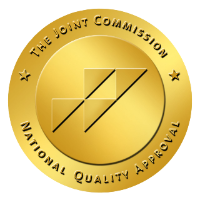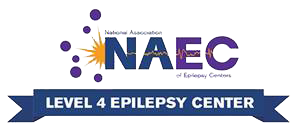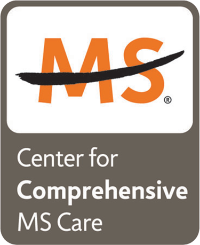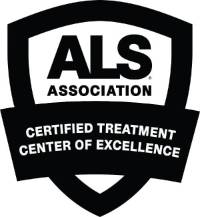Augusta University Health offers the region’s only neurological care program for adult
and pediatric patients. Our diverse team of neurologists and neurosurgeons focus on
patient care, with the goal of improving symptoms to enhance your quality of life.
Augusta University Health offers the region’s only neurological care program for adult
and pediatric patients. Our diverse team of neurologists and neurosurgeons focus on
patient care, with the goal of improving symptoms to enhance your quality of life.
Why Choose Us
A neurological disorder diagnosis can feel devastating. It may leave you wondering
how you will cope with symptoms that will impact your everyday life. When dealing
with a life-changing diagnosis and its associated symptoms, it’s easy to feel overwhelmed
with the important decisions involving your care. We’re here to help you and your
loved ones - from choosing the treatments that are right for you to navigating everyday
life. We offer:
- Teamwork: Our teams of neurologists, neurosurgeons, neuroradiologists and neurobehavioral practitioners work together to ensure high-quality
care through board meetings, conferences and joint clinic visits. They plan treatment
for complicated cases involving epilepsy, movement disorders, brain tumors, spine
conditions and problems with the blood vessels in the brain and spinal cord.
- Expertise: Our Comprehensive Epilepsy Program and Comprehensive Stroke Center have earned national recognition in treating these conditions. Our epilepsy and stroke
specialists deliver diagnostic expertise in combining tests for precise and timely
results.
- Advanced treatments: We offer a full range of the latest treatment options, including deep brain stimulation
to treat movement disorders and Gamma Knife to treat brain tumors. We also offer the latest neurovascular and endovascular treatments
for brain disorders.
- Interventional stroke care: We offer the region’s only interventional stroke care program, which requires a skilled
team of neurologists, neurosurgeons, intensive care unit staff and nurses. Our experts
perform both surgical and nonsurgical procedures to treat problems with the blood
vessels in the brain.
- Advanced neurocritical care: We have the area's largest neurocritical care unit that is equipped to stabilize and
treat any individual requiring neurosurgery. The unit includes a dedicated team of
neuro-critical care certified specialists and the most advanced diagnostic technology,
such as high-resolution MRI and cerebral and spinal angiography.
- Leaders in innovation: Our neurologists developed REACH Health, a nationally recognized telemedicine service.
This technology allows our team to diagnose and treat stroke from anywhere at any
time, expanding access to specialized stroke care.
- Collaboration: Our team works with other AU Health specialists from multiple fields of medicine,
such as neuro-oncology, neuropsychology, neuroradiology, pain management and radiation
oncology. Once your treatment is complete, we’ll collaborate with your primary care
doctor about ongoing management of your neurological health.
- Clinical trials: We’re working to identify new diagnostic tests and treatments for a wide range of
neurological disorders to improve outcomes. These conditions include brain tumors,
epilepsy, memory disorders, movement disorders, multiple sclerosis, neuromuscular
disorders and spine disorders.
Accreditations
Advanced Comprehensive Stroke Center
Our Comprehensive Stroke Center is accredited by the Joint Commission on Accreditation
of Healthcare Organizations, which indicates the highest level of quality assurance.
Level IV Epilepsy Center
The National Association of Epilepsy Centers recognizes our Comprehensive Epilepsy
Program as a Level IV center, the highest designation given. This designation allows
us to perform all types of diagnostic testing, medical management and surgery.
MS Care Center
The National Multiple Sclerosis Society recognizes our Multiple Sclerosis Center as
a Partner in MS Care and a Center for Comprehensive Care, or complete care. These
designations are the highest level of endorsement that the National Multiple Sclerosis
Society assigns. Our team has demonstrated the knowledge and expertise required to
treat multiple sclerosis and provides coordinated care that brings together experts
from many fields of medicine.
ALS Center of Excellence
The ALS Association (ALSA) recognizes our ALS Center as a Center of Excellence, confirming
that it meets the highest levels of established national standards of care in the
management of Amyotrophic Lateral Sclerosis (ALS). Certification is based on established
requirements of the program, professionals’ skill sets, people living with ALS served,
active involvement in ALS-related research, relationships with local Chapters, and
access to care.
Conditions We Treat
We treat many neurological disorders, such as Alzheimer's, back pain, seizures, migraines,
neuropathy, and stroke.
Diagnostic Tests
We perform a full range of neurological exams, diagnostic tests and procedures using
the latest technology. Whether you come to us with a previous diagnosis or new complaints,
we will perform the tests necessary to ensure that you receive the care you need.
Diagnostic imaging tests
We offer an array of diagnostic testing:
- Magnetic resonance imaging (MRI) uses a magnetic field to produce detailed images of your brain, face, neck, nervous
system and spine.
- Ultrasonography or neurosonography the brain and nervous system to look for problems affecting the brain and spinal cord.
- Computed tomography (CT) uses radiation, and sometimes injected contrast dye, to produce multiple images of
the head and spine. A computer then combines the images to give your doctor a cross-sectional
view of the brain or spine to determine possible causes of your symptoms.
- Arteriogram uses contrast dye and X-ray to produce images of blood vessels in the brain, head
and neck to look for blockages.
- Myelogram uses contrast dye that is injected into the spinal canal, the space formed by the
vertebrae that surrounds the spinal cord, along with X-ray or CT. This test looks
for issues with the spinal cord or canal.
- Positron emission tomography (PET) uses a radioactive drug, also called tracer, to evaluate how the brain is functioning.
- Single-photon emission computerized tomography (SPECT) evaluates blood flow and activity in the brain to diagnose Alzheimer's disease, as
well as other neurodegenerative diseases, strokes, seizures and memory loss.
Diagnostic clinical procedures
We offer diagnostic clinical procedures:
- Electrodiagnostic tests use electrodes to look at the electrical activity that moves from the brain to the
motor nerves to the muscles. This test looks for problems with the motor neurons and
muscles. Two types include electromyography (EMG) and nerve conduction velocity (NCV).
- Electroencephalography (EEG) uses electrodes to evaluate electrical charges that are produced in the brain. Our
specialists review this data to look for problems with the electrical activity in
the brain.
- Evoked potentials tests use electrodes to evaluate how the brain responds to stimulation through sight, sound
and touch. It is effective in helping to diagnose and treat disorders, such as multiple
sclerosis. Three types include the brainstem auditory evoked response (BAER) test,
somatosensory evoked response (SSER) test and visual evoked response (VER) test.
- Spinal tap involves inserting a needle into the lower back to collect cerebrospinal fluid to
look for infections, cancers and nervous system disorders.
- Brain biopsy involves removing a small piece of abnormal brain tissue and studying it under a
microscope to distinguish normal brain tissue from abnormal brain tissue.
Treatments
At Augusta University Neurosciences Center of Excellence, we offer a wide range of
neurological treatments. These treatments include both noninvasive and surgical procedures.
Our neurologists and neurosurgeons will help you determine the right treatments for
you.
We pride ourselves in our ability to offer advanced treatments, such as deep brain
stimulation and complex stent placement. We also perform advanced techniques to remove
blood clots in the brain.
We offer medications to manage symptoms and other noninvasive treatments such as:
- Injections to treat pain, inflammation, movement disorders and many other neurological disorders
- Cerebral angiography to evaluate and treat vascular and tumor lesions
- MRI-guided laser ablation, which uses light energy to target and kill brain tumors and treat epilepsy while protecting
healthy tissue
- Gamma Knife radiosurgery: A non-invasive procedure used to treat tumors, pain, and seizures. The system uses
radiation beams to target small areas of the brain
Neurosurgery
If you and your doctor decide that surgery is right for you, rest assured that you’re
in good hands. Our neurosurgeons deliver expertise in performing complex surgery of
the brain, spine and nerves. We offer a wide range of cerebrovascular and general
neurosurgery procedures.
Our neurosurgeons are experts in performing minimally invasive surgeries on the brain,
spine and nerves, including:
- Aneurysm coiling and embolization to treat brain lesions, such as aneurysms, vascular malformations and complex brain
tumors
- Cerebrovascular and general neurosurgery to restore neurological function
- Device implantation procedures, including deep brain stimulators to treat movement disorders and epilepsy, as well
as peripheral nerve stimulators to treat chronic pain
- Peripheral nerve surgery to evaluate and diagnose conditions, such as peripheral nerve disorder
Support services
Dealing with a neurological disorder can feel overwhelming. We offer services to help
you and your loved ones understand the condition and navigate it together. We offer:
- Nutrition counseling with certified dietitians who partner with your doctor to improve symptoms for certain
neurological disorders
- Occupational therapy for movement disorders and multiple sclerosis to help you regain the skills you need
to perform daily tasks
- Physical therapy for movement disorders and multiple sclerosis to help you regain strength
- Behavioral health care with neuropsychologists and psychologists who diagnose and treat neurological disorders
and determine how they affect your health
- Social work to point you toward resources to help you during your hospital stay and postoperative
care
- Speech pathology for movement disorders and multiple sclerosis to help you regain verbal skills
- Support groups for ALS, Huntington’s disease, multiple sclerosis, Parkinson’s disease and trigeminal
neuralgia to give you an opportunity to connect with others






